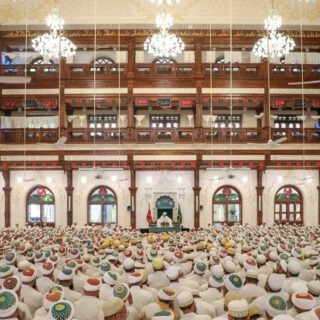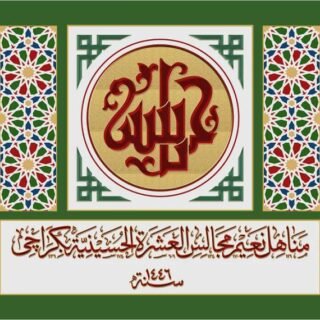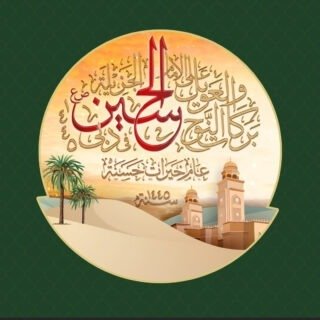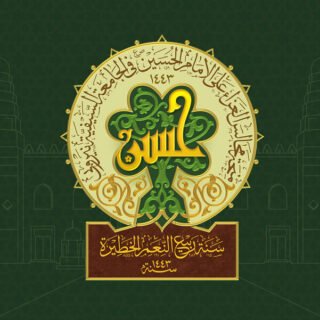6th ShehrAllah 1441 H
The 110th surah of the Quran Majid is Surah al-Nasr, which was the final surah revealed to Nabi Mohammed SA. When it was revealed he declared that now my passing is imminent, and expressed his desire to be reunited with Anbiya AS.
This surah encapsulates the entire life and times of Rasul Allah SA. By Allah’s nasr (divine aid) and fath (triumph), Rasul Allah SA established Islam. In its early years, only Maulana Ali AS and Maulatona Khadija AS answered his call, yet 23 years and 28 battles later, as the time to meet his Creator drew near, Nabi Mohammed SA had established a faith that would reach the far corners of the planet and leave its mark on each and every aspect of human existence.
Following the establishment of al-Qahera, the Aimmat Tahereen AS constructed its city walls with 4 gates. Two of these gates were names Bab al-Nasr and Bab al-Futuh respectively. Whenever, Imam’s armies set out for battle they would depart through Bab al-Nasr and when they returned they would enter through Bab al-Futuh.
Yesterday’s bayan focused on the need for man to differentiate between the beneficial and the harmful. Today’s bayan furthered this notion by establishing that adherence to the sharia of Islam allows an individual to make this distinction.
Three fundamental aspects of the Islamic sharia were also addressed: the wisdom inherent in its laws and principles, its perfection and, thirdly, its superiority to all previous sharias.
Sharia means a set of principles, a way of life and a divine code of conduct. Once during Aljamea-tus-Saifiyah’s Imithan Shafahi (viva voce), Syedna Mohammed Burhanuddin RA asked a student, ‘what is the greatest of all miracles?’ Then Syedna Burhanuddin RA answered, ‘to make man in to a firishta’. This is the purpose of sharia.
The word hikma (wisdom, sagacity) is derived from the Arabic root meaning to tie and bound. Horses are tied to prevent them from wandering off and protecting them from anything that may injure or hurt them. Likewise, the wisdom of sharia restrains man from carrying out deeds and acts that may ultimately prove to be detrimental to him.
Syedna al-Muayyad al-Shirazi RA writes, ‘the divinely inspired upholders of the sharia were aware that man would find no respite from having to eat, drink, procreate and satisfy his desires. However, they also sought to distinguish between man who possesses intellect and animals who are devoid of such faculties. In order to do so they brought these actions under the marquee of sharia in the form of directives and proscribes, so that they are not undertaken solely out of habit. If man were to adhere to the tenets of sharia all of his actions would be counted as acts of ibada of Allah and His obedience.
One argument often raised is that man can by virtue of his intellect differentiate between right and wrong. Why the need for a sharia? The 14th Imam, Maulana al-Muizz AS declared that the one who claims that he can differentiate and decide such matters using his own intellect is untruthful. It is evident that a human child cannot learn without a teacher. We may all be aware that wastefulness is immoral and wrong, yet the amount of excess and wastefulness taking place in the world today reveals that this action to counter it is not as forthcoming as it should be.
The perfection of Islamic sharia is seen in its foundation upon the natural world. Just as the natural functions in a well-defined and orderly manner, so too do the provisions of sharia. This world was created with a purpose and it is sharia that allows man to realize this purpose. Finally, Syedna Mohammed Burhanuddin RA explained that the superiority of this sharia in comparison to previous sharias is due to the fact that Rasul Allah SA studied the sharias laid down by previous Anbiya AS. He acquainted himself with all their intricacies and details, and then ultimately enacted a sharia that incorporated the best of all previous ones.
It was to uphold the tenets of sharia and to show all humankind the difference between right and wrong, that Maulana Imam Husain AS set forth to Karbala. The acts of savagery that took place during the days of Moharrum on its scorching sands shook the Islamic world to its core and led to a swift resurgence of dedication to the true message of Islam.








